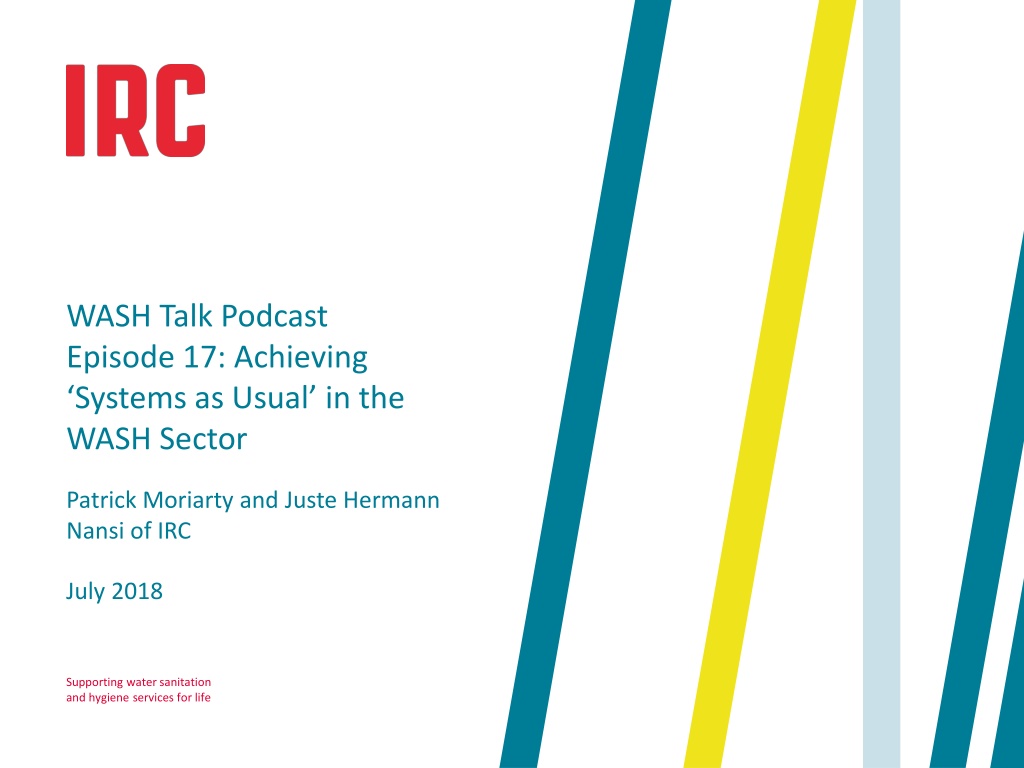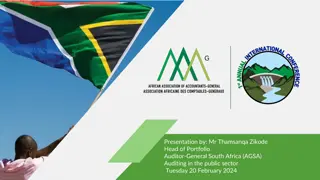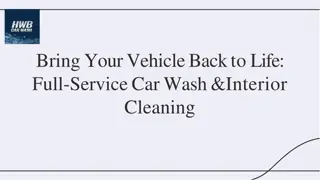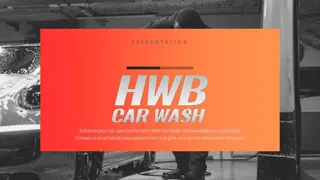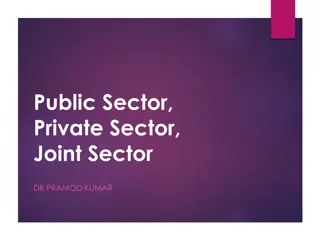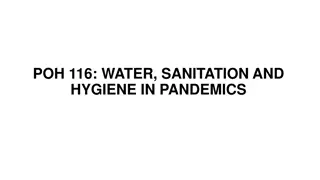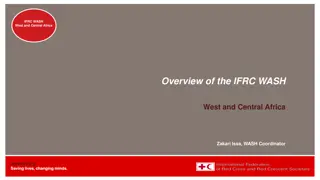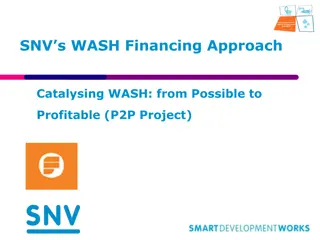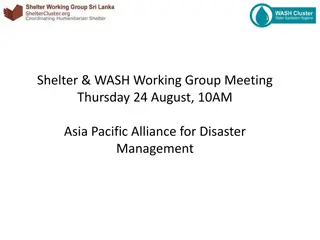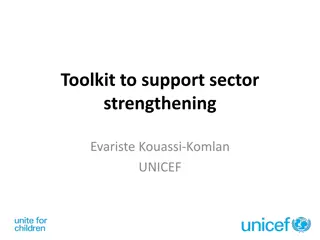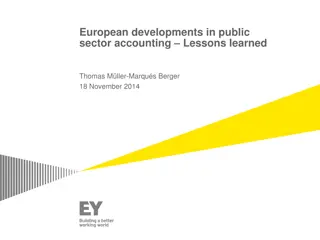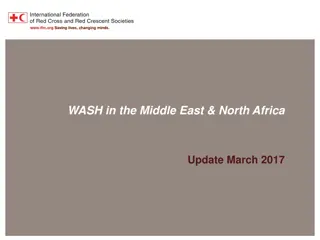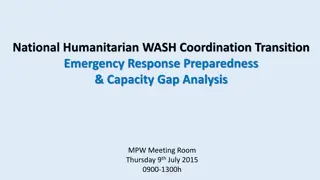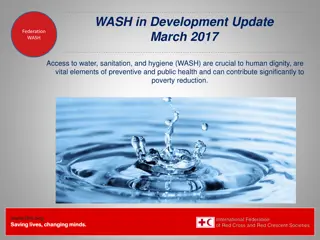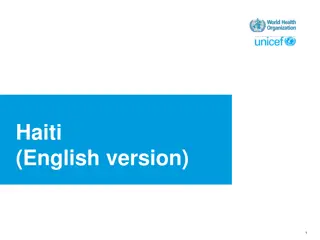Understanding WASH Systems in the Public Sector
Explore the challenges faced by the WASH sector in adopting a systems approach to service delivery, with insights from experts Patrick Moriarty and Juste Hermann Nansi. Discover why the health and education sectors excel in this area while the WASH sector lags behind, and delve into the key components of a WASH system for sustainable service provision.
Download Presentation

Please find below an Image/Link to download the presentation.
The content on the website is provided AS IS for your information and personal use only. It may not be sold, licensed, or shared on other websites without obtaining consent from the author. Download presentation by click this link. If you encounter any issues during the download, it is possible that the publisher has removed the file from their server.
E N D
Presentation Transcript
WASH Talk Podcast Episode 17: Achieving Systems as Usual in the WASH Sector Patrick Moriarty and Juste Hermann Nansi of IRC July 2018 Supporting water sanitation and hygiene services for life
WASH TALK PODCAST EPISODE 16: PUBLIC FINANCE AND ACCOUNTABILITY Introduction Why is the WASH sector so lagging behind other sectors when it comes to taking a systems approach to public services? The health and education sectors have adopted a whole systems approach, whereby achieving progress involves a mix of players and processes that work together in a synchronised way. On this episode, we explore why this is so, with two guests who have experience trying to get system actors to understand the concept of working in a system: Patrick Moriarty and Juste Hermann Nansi Juste Hermann Nansi is Country Director for IRC in Burkina Faso, with over 10 years professional experience in rural development in West Africa, mostly in WASH. And Patrick Moriarty is the CEO of IRC and has over 20 years in the sector, of which a significant part has been with IRC as Country Director in Ghana. The following slides give a few key takeaways from the interview.
WASH TALK PODCAST EPISODE 16: PUBLIC FINANCE AND ACCOUNTABILITY What do we mean by WASH systems? We do not refer to a tap, toilet or a pump. This is infrastructure, which is only one part of what is required to deliver a service. When we talk of WASH systems, we talk of all the components that are required for sustainable services, such as the people, money, the management, the institutions, and the policies. A WASH systems approach means focusing on all the elements needed for the service to work indefinitely, as opposed to just the presence of hardware.
WASH TALK PODCAST EPISODE 16: PUBLIC FINANCE AND ACCOUNTABILITY Is the idea of a system to deliver WASH services well known in the WASH sector? Other sectors follow systems approach when it's business as usual, such as the health and education sectors. But not the WASH sector. The WASH sector is crippled with system blindness . This problem was illustrated in a recent speech given by the Prime Minister in Burkina Faso, when the Minister highlighted the progress that had been made in the WASH sector by sharing the number of WASH facilities that had been built. But in the same speech, he would refer to the health system or the education system, and talk about the number of teachers or doctors that had been recruited and trained and the amount invested to sustain the services.
WASH TALK PODCAST EPISODE 16: PUBLIC FINANCE AND ACCOUNTABILITY Why is the WASH system so poorly understood? WASH systems are better understood in urban service provision, with utilities mandated to manage the system, but is particularly poorly understood in rural WASH service provision. This is partly because health and education delivery has always been housed under one Ministry In the WASH sector, service delivery has always fallen under several ministries, and so responsibility has been fragmented. What's more, responsibility is often devolved to regional and district levels where capacity is weak.
WASH TALK PODCAST EPISODE 16: PUBLIC FINANCE AND ACCOUNTABILITY Do we need rural utilities? In more developed countries, as systems have grown up, they have been taken on by municipalities, which grew into sort of rural utilities. A process of "utilitisation" could be needed. This has happened in Uganda where umbrella organisations responsible for community water systems have been turned into a series of rural water utilities, and have taken on ownership and management of the systems. Perhaps rural utilities is the way to go.
WASH TALK PODCAST EPISODE 16: PUBLIC FINANCE AND ACCOUNTABILITY How do we get this systems thinking approach established at the local level? Many practitioners are seeing immense resistance among government authorities who prefer business as usual. To meet the 2030 targets, the systems foundations need to be established now. One of the reasons is that the sector has been led by people who are only familiar with infrastructure provision and no little about managing the infrastructure. Again, this is "systems blindness". What IRC has been trying to do is remove this systems blindness from the sector, to get service providers working in this space to realise they're players in the system and they rely on other aspects of the system.
WASH TALK PODCAST EPISODE 16: PUBLIC FINANCE AND ACCOUNTABILITY What actions can practitioners take to get systems thinking embedded in their context? Practitioners can show examples from other sectors who understand systems, such as health and education, and the difference a system makes to end result. There should be more opportunities to spread the message of WASH systems, and for people to learn and get familiar with the new paradigm. Also, practitioners should not pretend to be able do it all themselves, acting in isolation. This means donors need to be educated that WASH improvements are part of a system, that projects have boundaries that touch the system, and need to be firmly integrated with the rest of the system before they exit.
WASH TALK PODCAST EPISODE 16: PUBLIC FINANCE AND ACCOUNTABILITY Your next steps Read more about taking a systems approach: We need evidence that strong WASH systems provide reliable WASH services by Angela Huston https://www.ircwash.org/blog/what- matters-gets-measured-and-what-gets-measured-ends-mattering IRC s systems approach: key resources https://www.ircwash.org/news/irc%E2%80%99s-systems-approach-key- resources Listen at https://www.ircwash.org/washtalk or on Soundcloud.com Add to the discussion by using the hashtag #WASHtalk on Twitter, or in the comments on facebook
Visiting address Bezuidenhoutseweg 2 2594 AV The Hague The Netherlands Postal address P.O. BOX 82327 2508 EH The Hague The Netherlands T +31 70 3044000 info@ircwash.org www.ircwash.org Supporting water sanitation and hygiene services for life
